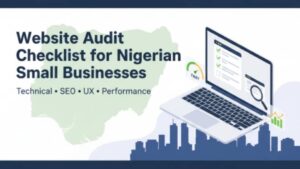When most people think about managing a website, the first thing that comes to mind is web hosting — paying a company to keep your site online. While hosting is important, website maintenance is a much broader and more critical task.
Just like a car needs regular servicing to run smoothly, your website needs ongoing care to stay secure, functional, and relevant. In this guide, we’ll explore why website maintenance is more than just hosting, and how it impacts your business success.
What Is Website Maintenance?
Website maintenance refers to all the ongoing tasks required to keep your site secure, fast, updated, and functional. It includes:
Updating software, plugins, and themes
Fixing bugs and broken links
Backing up your website regularly
Monitoring performance and security
Adding or updating content
Checking SEO health
Why Hosting Alone Isn’t Enough
Web hosting ensures that your website’s files are stored and accessible online. But hosting alone doesn’t guarantee:
Security updates
Content freshness
SEO optimization
User experience improvements
Without regular maintenance, your website can suffer from poor performance, hacking risks, and outdated content — all of which drive visitors away.
Key Components of Website Maintenance
1. Security Updates
Outdated software and plugins are prime targets for hackers.
Fix:
Install updates promptly.
Use tools like Wordfence for WordPress security.
2. Performance Optimization
A slow site frustrates users and lowers your Google rankings.
Fix:
Compress images using TinyPNG.
Use caching and a CDN like Cloudflare.
3. Regular Backups
In case of hacking or server crashes, backups save you from losing everything.
Fix:
Schedule automatic backups via UpdraftPlus or your hosting control panel.
4. Content Updates
Fresh content boosts SEO and user engagement.
Fix:
Post new blog articles, update old pages, and refresh visuals.
5. Broken Link Checks
Broken links hurt user experience and SEO.
Fix:
Use Broken Link Checker to find and fix them.
6. SEO Monitoring
Even well-designed sites need ongoing SEO care.
Fix:
Track rankings using Google Search Console.
Optimize for new keywords and trends.
How Often Should Website Maintenance Be Done?
Weekly: Update plugins, check forms, and review site security.
Monthly: Backups, performance checks, broken link scans.
Quarterly: Content review, SEO audits, design improvements.
Annually: Full site review, domain renewal, hosting plan evaluation.
Benefits of Regular Website Maintenance
Improved Security: Reduces hacking risks.
Better SEO Rankings: Google favors updated, secure sites.
Enhanced User Experience: Keeps visitors engaged.
Reduced Downtime: Minimizes costly outages.
Long-Term Savings: Prevents expensive emergency fixes.
Final Thoughts
Website hosting is like renting a space for your store — but maintenance is what keeps that store safe, attractive, and running smoothly. If you want your website to generate leads, sales, and trust, regular maintenance is non-negotiable.
Need professional website maintenance in Nigeria? We offer affordable packages that keep your site secure, updated, and performing at its best. Contact us to learn more.

